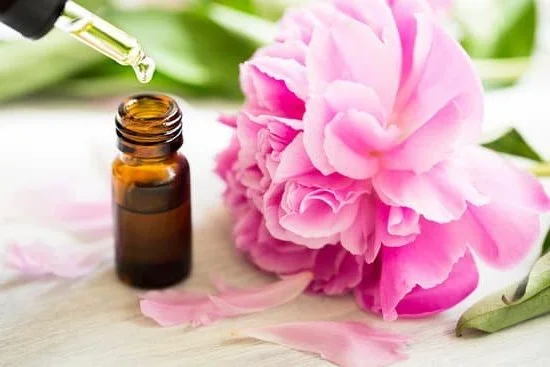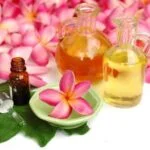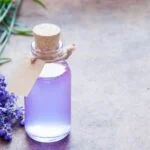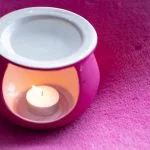Frankincense aromatherapy uses have been valued for centuries for their numerous therapeutic benefits and relaxing properties. In this article, we will explore the history of frankincense and its traditional uses, as well as the overview of frankincense essential oil.
We will also delve into the various benefits of frankincense aromatherapy and provide tips on how to incorporate it into daily life. Additionally, we will discuss different types of aromatherapy with frankincense, as well as safety precautions when using frankincense essential oil.
Frankincense has a long history dating back to ancient civilizations such as Egypt, where it was used in religious ceremonies and for medicinal purposes. Today, it continues to be cherished for its calming and grounding effects, making it a popular choice for aromatherapy practices. The essential oil derived from the resin of the Boswellia tree has been found to have various healing properties that promote overall wellbeing.
Whether used in a diffuser, added to bath water, or applied directly to the skin through massage, frankincense aromatherapy offers a wide range of benefits including stress relief, immune support, and emotional balance. With its rich history and versatility, frankincense essential oil is a valuable addition to any holistic wellness routine. Join us as we explore the world of frankincense aromatherapy and its many applications for enhancing health and happiness.
History of Frankincense and Its Traditional Uses
The use of frankincense for its aromatic and medicinal properties dates back thousands of years. In ancient times, frankincense was highly valued and utilized in religious ceremonies, traditional medicine, and daily life. The resin from the Boswellia tree, which is native to the Arabian Peninsula and northeastern Africa, has been traded along the Silk Road for over 5,000 years.
Traditional uses of frankincense include its incorporation into incense for religious rituals by various cultures, including Ancient Egyptians, Greeks, Romans, and Assyrians. It was also used as a perfume, preservative, and even a remedy for various ailments. The therapeutic benefits of frankincense have been well-documented in ancient texts such as the Ebers Papyrus (an ancient Egyptian medical document) and the Bible.
Today, the rich history of frankincense has contributed to its widespread use in modern aromatherapy practices. The resin is still considered a precious commodity in many parts of the world due to its historical significance and potent healing properties. Frankincense aromatherapy uses continue to evolve as more people discover its holistic benefits for mind, body, and spirit.
| Traditional Uses | Frankincense Aromatherapy Today |
|---|---|
| In religious ceremonies | Enhancing overall wellbeing |
| As a perfume | Mind-body-spirit healing properties |
| As a remedy for ailments | Holistic benefits |
Overview of Frankincense Essential Oil
Frankincense essential oil is derived from the resin of the Boswellia tree, particularly Boswellia sacra, through a process of steam distillation. This ancient and revered oil has been used for thousands of years in religious ceremonies, traditional medicine, and aromatherapy practices. The oil is known for its woody, earthy scent and is valued for its potential therapeutic properties.
Benefits of Frankincense Aromatherapy
There are numerous benefits to using frankincense essential oil in aromatherapy. Some of the key advantages include:
- Stress reduction: Frankincense aromatherapy is believed to have calming effects on the mind and body, making it an ideal choice for relaxation.
- Respiratory support: Inhaling frankincense oil can help clear the airways and promote easier breathing, making it beneficial for respiratory issues.
- Mood enhancement: The aroma of frankincense has been associated with mood-boosting effects, helping to alleviate feelings of anxiety and depression.
These are just a few examples of the many potential benefits of incorporating frankincense essential oil into your aromatherapy practice. Its versatile nature makes it a popular choice for addressing various wellness concerns.
How to Use Frankincense Essential Oil for Aromatherapy
Frankincense essential oil can be used in a variety of ways to enjoy its therapeutic benefits in aromatherapy:
- Dilute a few drops of frankincense oil in a carrier oil such as jojoba or coconut oil and apply it topically to pulse points or areas of tension.
- Add a few drops of the oil to a diffuser to introduce its aroma into your living or working space.
- Create your own custom blends by combining frankincense with other complementary essential oils like lavender, bergamot, or cedarwood.
By exploring different methods of application, you can find the most effective way to incorporate frankincense aromatherapy into your daily routine.
Benefits of Frankincense Aromatherapy
The use of frankincense essential oil in aromatherapy has been associated with a wide range of benefits for both physical and mental health. This ancient and revered oil offers numerous advantages that make it a popular choice for those seeking natural ways to promote wellness and balance in their lives.
Physical Benefits
Frankincense essential oil is known for its anti-inflammatory properties, which can be beneficial for reducing joint pain and inflammation. When used in aromatherapy, the oil can help alleviate discomfort and improve flexibility, making it a valuable tool for individuals dealing with conditions such as arthritis or muscle soreness. Additionally, frankincense aromatherapy may also support respiratory health by promoting clear breathing and providing relief from congestion.
Mental and Emotional Benefits
In addition to its physical advantages, frankincense aromatherapy is valued for its ability to promote emotional wellbeing and mental clarity. The warm, woody aroma of the oil has been linked to stress reduction and relaxation, making it an excellent choice for individuals looking to ease feelings of anxiety or tension.
Many people find that incorporating frankincense into their daily routine through aromatherapy helps create a sense of calm and balance, allowing them to combat the challenges of modern life with greater resilience.
Spiritual Benefits
Beyond its physical and mental benefits, many practitioners believe that frankincense plays a vital role in spiritual practices. In certain cultures, the use of this sacred resin in aromatherapy is believed to facilitate meditation, enhance spiritual awareness, and create an atmosphere conducive to prayer or mindfulness.
Whether used independently or as part of a broader holistic approach, frankincense aromatherapy is seen as a powerful tool for connecting with one’s inner self and fostering a sense of harmony with the universe.
How to Use Frankincense Essential Oil for Aromatherapy
Frankincense essential oil is a versatile and popular choice for aromatherapy due to its wide range of benefits and uses. There are several different methods for using frankincense essential oil in aromatherapy, each with unique advantages. Whether you prefer to diffuse it, apply it topically, or use it in a bath, there are many ways to incorporate frankincense into your aromatherapy practice.
Diffusion
One of the most common ways to use frankincense essential oil in aromatherapy is through diffusion. This method involves adding a few drops of the oil to a diffuser filled with water, which then disperses the oil into the air as a fine mist. Diffusing frankincense can help create a calm and tranquil atmosphere, making it an ideal choice for relaxation and meditation.
Topical Application
Another effective way to use frankincense essential oil for aromatherapy is through topical application. When diluted with a carrier oil such as coconut or jojoba oil, frankincense can be massaged into the skin to promote feelings of relaxation and wellbeing. It can also be applied to specific areas of the body to support healthy skin and reduce the appearance of blemishes.
Bath Soak
For a luxurious and therapeutic experience, consider adding frankincense essential oil to your bath. Simply mix a few drops of the oil with Epsom salts or a carrier oil before adding it to your bathwater. The warm water will help release the aroma of the frankincense, creating a soothing and rejuvenating atmosphere that can help relieve stress and tension.
By incorporating these different methods of using frankincense essential oil into your aromatherapy routine, you can experience its many benefits while enhancing your overall sense of wellbeing. Always remember to use caution when using essential oils topically or internally, and consult with a qualified aromatherapist or healthcare professional if you have any concerns about using frankincense in aromatherapy.
Different Types of Aromatherapy With Frankincense
Frankincense aromatherapy can be experienced in various forms, each providing unique benefits and experiences. One of the most common types of aromatherapy using frankincense is through diffusion. By adding a few drops of frankincense essential oil to a diffuser, the aromatic molecules are dispersed into the air, creating a calming and grounding atmosphere. This method is perfect for creating a peaceful environment at home or in the office.
Another form of aromatherapy with frankincense is through topical application. When diluted with a carrier oil, such as jojoba or coconut oil, frankincense essential oil can be gently massaged onto the skin. This method allows for the absorption of the oil’s therapeutic properties and can be particularly beneficial for promoting overall skin health and reducing the appearance of blemishes.
Additionally, inhalation is another way to experience the benefits of frankincense aromatherapy. A few drops of frankincense essential oil can be added to a bowl of steaming water for inhalation, or applied to a cotton ball or handkerchief for easy access throughout the day. Inhaling the aroma of frankincense can provide emotional support and promote relaxation.
Exploring these different types of aromatherapy with frankincense allows individuals to customize their experience based on their preferences and needs. Whether it’s through diffusion, topical application, or inhalation, each method offers its own unique way to benefit from the power of frankincense essential oil in promoting overall wellbeing.
Frankincense Aromatherapy Blends and Recipes
Frankincense essential oil has been used for centuries in aromatherapy, and its versatility allows it to be mixed with other essential oils to create unique blends. One popular blend is combining frankincense with lavender essential oil, known for its calming properties. This blend can promote relaxation and reduce stress when used in a diffuser or added to a warm bath.
Another popular blend involves combining frankincense with citrus essential oils such as lemon or orange. This combination can uplift the mood and provide an energizing effect, making it a great option for aromatherapy during the morning or midday slump.
For those looking to derive respiratory benefits from their aromatherapy session, a blend of frankincense with eucalyptus essential oil can help clear the airways and support overall respiratory health. This blend is particularly beneficial during cold and allergy season.
When creating your own frankincense aromatherapy blends, it’s important to dilute the essential oils properly with a carrier oil like coconut or jojoba oil. Always perform a patch test before applying blends to the skin to avoid any adverse reactions.
| Blends | Benefits |
|---|---|
| Frankincense + Lavender | Promotes relaxation and reduces stress |
| Frankincense + Citrus (lemon or orange) | Uplifts mood and provides an energizing effect |
| Frankincense + Eucalyptus | Clears airways and supports respiratory health |
Tips for Incorporating Frankincense Aromatherapy Into Daily Life
Frankincense aromatherapy can be a beneficial addition to your daily routine, offering numerous wellness benefits to enhance your overall wellbeing. Here are some tips for incorporating the use of frankincense essential oil into your daily life:
1. Diffuse at Home: Utilize a diffuser to fill your home with the calming and grounding aroma of frankincense essential oil. Add a few drops of the oil to the water in your diffuser and enjoy the therapeutic benefits as it disperses throughout your living space.
2. Create Personal Care Products: Incorporate frankincense essential oil into your personal care products such as homemade lotions, face creams, or body scrubs. The aromatic properties of frankincense can add a luxurious and soothing element to your self-care routine.
3. Meditation and Yoga: Enhance your meditation or yoga practice by incorporating frankincense essential oil. Apply a diluted mixture of the oil to pulse points before starting your practice or diffuse it in the room to create a serene and tranquil atmosphere.
4. Inhalation: Directly inhale the aroma of Frankincense essential oil by adding a drop to your palms, rubbing them together, and cupping them over your nose and mouth. Take several deep breaths to experience its calming and centering effects.
5. Aromatherapy Jewelry: Consider using aromatherapy jewelry such as diffuser necklaces or bracelets that allow you to carry the scent of Frankincense with you throughout the day, providing continuous aromatherapy benefits.
Incorporating frankincense aromatherapy into daily life can significantly contribute to feelings of relaxation, mental clarity, and emotional balance, making it an excellent holistic approach for overall wellness maintenance.
Precautions and Safety Tips for Using Frankincense Essential Oil
When using frankincense essential oil for aromatherapy, it is important to be mindful of potential precautions and safety tips to ensure a positive and safe experience. While frankincense aromatherapy offers many benefits, it is essential to use this powerful essential oil with care.
One important precaution when using frankincense essential oil is to always dilute it before applying it to the skin. Undiluted essential oils can cause skin irritation, so it is recommended to mix a few drops of frankincense oil with a carrier oil, such as coconut or jojoba oil, before applying it to the skin.
Additionally, pregnant women should exercise caution when using frankincense essential oil for aromatherapy. While there are no specific studies indicating that frankincense is harmful during pregnancy, it is always best to consult with a healthcare professional before using any essential oils during pregnancy or while breastfeeding.
It is also important to store frankincense essential oil properly. Like other essential oils, frankincense should be kept in a cool, dark place and out of reach of children and pets. Proper storage helps maintain the quality and potency of the oil for optimal aromatherapy benefits. By following these precautions and safety tips, individuals can safely enjoy the benefits of frankincense aromatherapy as part of their overall wellbeing routine.
Conclusion
In conclusion, the use of frankincense aromatherapy has been deeply rooted in history and tradition, with its powerful benefits extending to modern-day holistic practices. The essential oil extracted from the resin of the Boswellia tree has been known for its therapeutic properties, promoting both physical and emotional wellbeing. From its historical significance to its various modern applications, frankincense aromatherapy has demonstrated its effectiveness in enhancing overall health and wellness.
The myriad benefits of frankincense aromatherapy include its ability to reduce stress and anxiety, improve sleep quality, alleviate respiratory issues, and even support skin health. Its versatility allows for different types of application, such as diffusing, topical use, or incorporating into homemade blends. Additionally, the rich history and cultural significance of frankincense add a layer of spiritual and emotional healing to its aromatherapeutic uses.
With the proper precautions and safety measures in place, incorporating frankincense essential oil into daily life can be a transformative experience. Whether it’s through diffusing a calming blend or creating personalized aromatherapy recipes, the power of frankincense aromatherapy can truly enhance overall wellbeing.
As more individuals seek natural remedies for their health needs, the ancient practice of using frankincense for aromatherapy continues to stand the test of time as an effective tool for promoting balance and harmony within the mind, body, and spirit.
Frequently Asked Questions
What Is Frankincense Used for in Aromatherapy?
Frankincense is widely used in aromatherapy for its calming and grounding effects. It can help reduce stress, anxiety, and depression, as well as improve focus and relaxation during meditation or yoga.
What Is Frankincense Used for on the Body?
When used on the body, frankincense essential oil is known for its anti-inflammatory and skin-healing properties. It can be applied topically to reduce the appearance of scars, blemishes, and wrinkles. It is also believed to support overall skin health and rejuvenation.
What Is the Best Way to Use Frankincense Essential Oil?
The best way to use frankincense essential oil is through methods such as diffusion, inhalation, or topical application when diluted with a carrier oil. Diffusing the oil can help create a calming atmosphere, while inhalation can provide emotional support. When applied topically, it’s important to do a patch test first and dilute the oil properly to avoid skin irritation.

Are you looking for a natural way to improve your health and wellbeing?
If so, aromatherapy may be the answer for you.





